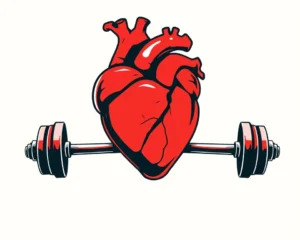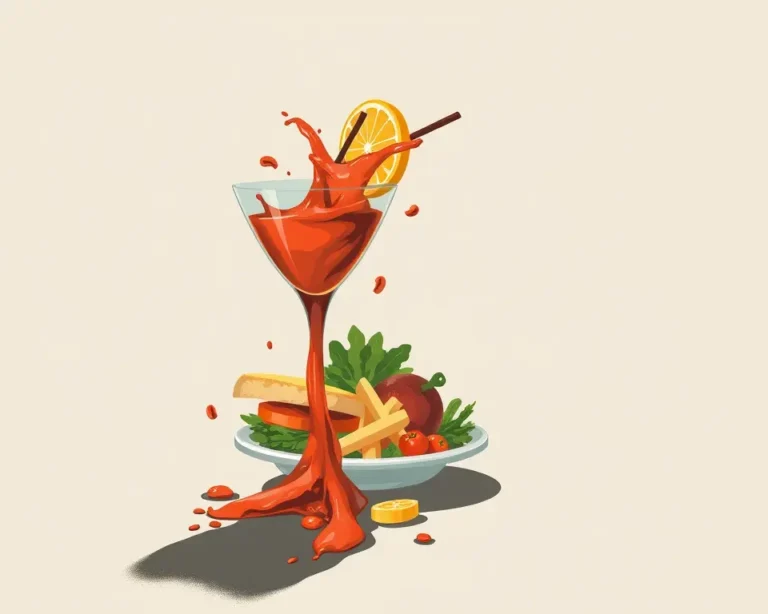Alcohol is often seen as a social lubricant, a way to unwind, or a celebratory beverage. However, nutritionists warn that alcohol can interfere with healthy eating habits in sneaky ways. Understanding these subtle yet significant effects can empower you to make more informed choices and maintain a balanced, healthy lifestyle.
The Empty Calorie Conundrum
Alcoholic beverages often contain a significant number of calories. These calories are considered “empty” because they provide little to no nutritional value. Unlike food that fuels your body with essential nutrients, alcohol offers calories without the benefits of vitamins, minerals, or other vital components.
- Calorie Density: Alcohol contains 7 calories per gram, compared to 4 calories per gram for carbohydrates and protein, and 9 calories per gram for fat.
- No Nutritional Value: These calories don’t contribute to your daily nutrient needs.
- Weight Gain: Regular consumption of alcohol can lead to an increase in daily caloric intake, potentially causing weight gain over time.
Appetite Stimulation and Poor Food Choices
One of the sneakiest ways alcohol interferes with healthy eating is by stimulating appetite andimpairing judgment, leading to poor food choices.
- Increased Hunger: Alcohol can increase the hormones in your gut that raise your appetite and interfere with brain signals that tell you when you’re full. Studies show that alcohol consumption before or during meals can increase food intake by up to 30%.
- Lowered Inhibitions: Alcohol lowers inhibitions, making you more likely to indulge in unhealthy foods. This can lead to cravings for high-fat, high-sugar, and high-salt foods like burgers, kebabs, and pizzas.
- Poor Decisions: When under the influence, you might find yourself reaching for unhealthy snacks and larger portions that you would typically avoid.
Metabolism Disruption
Alcohol disrupts your metabolism, making it harder to lose weight and maintain a healthy body composition.
- Prioritized Metabolism: When you consume alcohol, your body prioritizes metabolizing it over other nutrients because it’s seen as a toxin. This process slows down the metabolism of fats and carbohydrates.
- Fat Burning Inhibition: Alcohol can inhibit your body’s ability to burn fat efficiently. Instead of using stored fat for energy, the body burns the calories from alcohol first, leading to increased fat storage.
- Inefficient Metabolism: Alcohol makes your metabolism less efficient, particularly in breaking down fat. About half of your body’s energy goes into eliminating ethanol instead of other processes, slowing down fat burning.
Nutrient Absorption Interference
Alcohol can also interfere with the absorption of essential vitamins and minerals, leading to nutrient deficiencies.
- Impaired Digestion: Alcohol can damage the organs involved in digestion, absorption, and nutrient processing. It can also decrease the secretion of digestive enzymes from the pancreas and impair nutrient absorption by damaging the cells lining the stomach and intestines.
- Reduced Nutrient Uptake: Alcohol inhibits the absorption and usage of vital nutrients such as thiamin (vitamin B1), vitamin B12, folic acid, and zinc.
- Key Nutrient Depletion: Key nutrients affected by alcohol consumption include vitamin B12, folate, magnesium, vitamin A, calcium, and potassium. Deficiencies in these nutrients can affect overall health and bodily functions.
Hormonal Imbalance
Alcohol can disrupt hormone levels, including those that regulate hunger, metabolism, and muscle recovery.
- Appetite Regulation Disruption: Alcohol can disrupt hormones involved in appetite regulation, contributing to weight gain.
- Testosterone Reduction: Alcohol triggers the production of substances in the liver that are toxic to testosterone, which is essential for muscle development and recovery.
- Human Growth Hormone (HGH) Reduction: Alcohol can decrease the secretion of HGH by as much as 70%, affecting muscle growth and repair.
The Impact on Gut Health
Chronic alcohol use can disrupt the balance of bacteria in your gut, leading to various health issues.
- Dysbiosis: Excessive alcohol consumption can decrease levels of good gut bacteria and increase levels of harmful bacteria, leading to dysbiosis.
- Gastrointestinal Issues: This imbalance can cause immediate gastrointestinal distress, including diarrhea, cramping, gas, and bloating.
- Long-Term Effects: Over time, chronic alcohol use can lead to more severe health effects such as loss of appetite, abdominal pain, pancreatitis, gastritis, and even stomach cancer.
Practical Strategies to Minimize Alcohol’s Impact
While it’s essential to be aware of the potential downsides of alcohol, you can take steps to minimize its impact on your healthy eating efforts.
- Moderate Consumption: Follow the Dietary Guidelines for Americans, which recommend limiting alcohol to one drink per day for women and no more than two drinks per day for men.
- Eat Before and While Drinking: Consuming a balanced meal before drinking can slow down alcohol absorption. Choose foods with protein, healthy fats, and complex carbohydrates. Eating while drinking can also help you slow down your drinking pace.
- Choose Wisely: Opt for drinks that are lower in alcohol content and calories. Be mindful of added sugars in mixers. Consider light beer, wine spritzers, or mixed drinks with soda water and a splash of juice.
- Stay Hydrated: Drink plenty of water to prevent dehydration, which can lead to fatigue, dizziness, and poor food choices. Alternate alcoholic drinks with water to give your body time to process the alcohol.
- Set Limits: Before going out, set a limit on the number of drinks you’ll have and stick to it.
- Avoid Salty Snacks: Be mindful of cravings for salty and greasy foods, and try to avoid them. Prepare healthy snacks in advance to have a better alternative when cravings strike.
- Be Active: Increase your calorie expenditure by exercising on the day of a night out to help minimize alcohol-associated fat gain.
- Prioritize Sleep: Get enough sleep to combat the effects of alcohol on sleep quality and energy levels.
- Seek Support: If you find it challenging to manage your alcohol consumption, seek support from healthcare professionals or support groups.
The Role of a Registered Dietitian
Registered Dietitian Nutritionists (RDNs) can play a crucial role in helping individuals navigate the complexities of alcohol consumption and its impact on nutrition.
- Expert Guidance: RDNs can provide evidence-based insights and practical tips to help you balance your social life with your overall well-being.
- Personalized Plans: They can develop personalized nutrition plans that address your specific needs and goals, considering your alcohol consumption patterns.
- Behavioral Strategies: Dietitians can offer advanced counseling techniques, such as cognitive behavioral therapy and coaching, to enhance lifestyle changes and improve outcomes.
Conclusion
While alcohol can be a part of social gatherings and celebrations, it’s essential to understand its potential impact on your healthy eating habits. By being mindful of the empty calories, appetite stimulation, metabolism disruption, and nutrient absorption interference, you can make informed choices to minimize its negative effects. Employ practical strategies like moderate consumption, balanced meals, and staying hydrated to maintain a healthy lifestyle while still enjoying social occasions.







